8 Little Things That Make Me Feel Like A Foreigner at Home
These are a few of the subtle cultural differences that make me feel like a foreigner in my own country. (I’ve written about culture shock before, when I moved to China, but this is about reverse culture shock – after moving back to the US from Italy.)
No matter where I am in the world, I’ve discovered one thing that always makes me feel like I’m still traveling: Being confused. Even in my home country, so many things make me feel just like I’ve felt in dozens of other places, where I was either a traveler or a newly arrived expat.
I’m talking about the times when I just don’t know the right custom for the simple interactions that locals don’t even think about. And I mean really simple. Paying a bill, getting on a bus, turning on a light – that kind of thing.
It makes sense when this kind of confusion happens abroad (it’s part of culture shock). But it’s far stranger when you come home (after five years abroad, in my case) and you’re confused by your own culture. And even by the tiniest habits that don’t seem grand enough to be considered part of a culture.
How can you forget the habits that are so insignificant you don’t even remember learning them? I don’t know, but it turns out you can.
These are the little things that make me feel like a foreigner at home. I think this list will feel familiar to a lot of expats or former expats, both Europeans in North America, and vice versa.
1. Looking for light switches outside of rooms.
The strangest thing is that I didn’t notice most of the items on this list until someone pointed out how weird I was acting. But this one I noticed on my own. In Italy, light switches are almost always in the hallway outside of a room, not in the room where the light is. This is especially true for bathroom light switches, and I cannot for the life of me understand why.
Aren’t Italian electricians just begging little kids to mess with whoever’s in the bathroom? That’s what I would have done, had I been given the chance.
Maybe kids are better behaved in Europe? Or because it’s not novel, maybe they don’t see it as an opportunity for mischief. Or maybe it’s something about the electrical wiring? (If any Italian electricians read this and have an answer, please tell me!)
Whatever the reason, I now regularly spend time feeling up the walls outside of bathrooms, trying to figure out where they put the switch before finally finding it inside the bathroom. And every single time, I wonder how it’s possible that I still haven’t unlearned this habit.
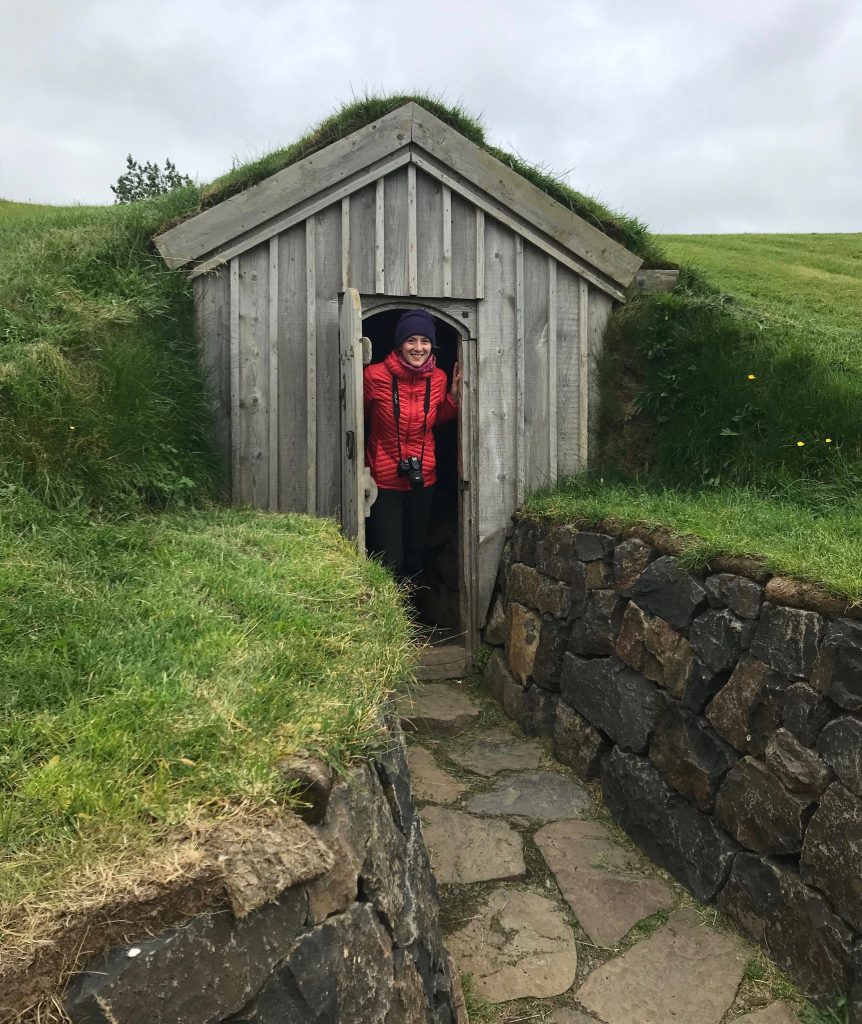
2. Holding my pee.
As a general rule, you can’t use any bathroom in Europe if you didn’t pay for it.
The only public bathrooms are those labeled “public restroom” (or WC, which is pretty international). And they’re usually disgusting and located in an alley or a back entrance to a public building. And you often still have to pay for them, which didn’t seem right when I first arrived in Europe. I mean, if it’s not even clean, why do I have to pay for it?
But now I just accept this as the way things are everywhere.
We visited a friend in LA last summer, and we’d been walking around Santa Monica for hours when I said something like, man I wish there were a bathroom somewhere. He looked at me like I was crazy and said just go into any of the restaurants or shops.
Well… I guess I could ask? But the idea completely hadn’t occurred to me, because I had been trained not to. In Europe, they will tell you no.
The bizarre thing is how ingrained these habits get in your mind – even when you learn them as adults.
A couple of months before the LA trip, a friend from the US stayed with us in Milan and joked that she’d been dehydrated since she got to Europe. Why? Because she never knew when she’d find a bathroom, so she was trying to just avoid ever having to pee during the day.
As she was describing this, I felt my eyes get wide as I realized she was right – but I had forgotten this was different in the US. And yet, a couple months later in LA, I had completely forgotten the lesson and reverted back to my European mind.

3. Feeling the urge to hug and kiss everyone I know.
This is a non-issue now that we’re all in quarantine and all of my socializing involves a screen. And like many other things, this custom might change a little even in Italy when the pandemic passes.
But regardless, the way we greet each other in US feels awkward to me now.
Sure, if it’s a professional encounter, or I’m meeting someone for the first time, there’s a handshake, just like in Italy. But when you meet casual friends and acquaintances in the US, there’s no standard greeting. Some people are huggers, but just as many people aren’t, and if you don’t know someone well you don’t really know what you should do.
So that’s why we’re usually left with a slightly awkward nod and a wave from a few feet away, feels like I’m actually acknowledging the person.
And I’m left feeling weird about not saying hello and goodbye with a light hug and little kiss on each cheek. (The left cheek gets the first kiss in Italy, so go right.)
4. Being shocked by problems that have already been fixed in other places.
I don’t know if this is a result of grad school doubling my focus on sustainability, or just a result of living in Europe for several years, but now I can’t stop noticing all the ways the US is behind in sustainability.
Things like stores, restaurants, and even people’s homes being uncomfortably air-conditioned in the summer. And sprawling US cities with laughably bad public transportation that require people to use cars for everything. Even plastic and glass recycling are not even available in many parts of the US.
In Milan, everyone separates their recyclables (and you can get a fine if you don’t). Even compost is collected separately by the city.
In downtown Chicago, I found several options for services that pick up compost. But all of them mean paying a company $10 a week to collect it from me, and having another thing to remember to pause when I go out of town. The fact that these options exist is a good starting point, but how are we still at the starting point? How is it acceptable that our cities are still set up for wastefulness as the default? These things have become just incomprehensible to me now.
If you want to get people to make green choices (or any choices) you have to make those choices the default, as the behavioral economist Dan Ariely explains:
That’s the great thing about composting in Milan, where you don’t have to think about, opt-in, or organize anything. It’s just automatically taken care of by the city, because the city considers it important.
Plus, when I travel in the US, I get endlessly frustrated. Many hotels still use individual throw-away shampoo bottles (which I hardly ever see in Europe, where most places have switched to bulk dispensers). And they serve continental breakfast with all plastic everything, often without even a recycling bin.
(I could go on forever on this topic. Instead, I’m writing a sustainable travel post with a lot more about these differences.)
5. Opening doors the wrong way.
Doors going out of buildings in the US open outwards. I’ve always assumed this is because it’s easier to escape if there’s a fire, which seems like a good reason.
So why is it that in Europe you push the door to go into a shop, and pull it to open to leave? I want there to be a logical explanation for this, butI have not figured out what it could be.
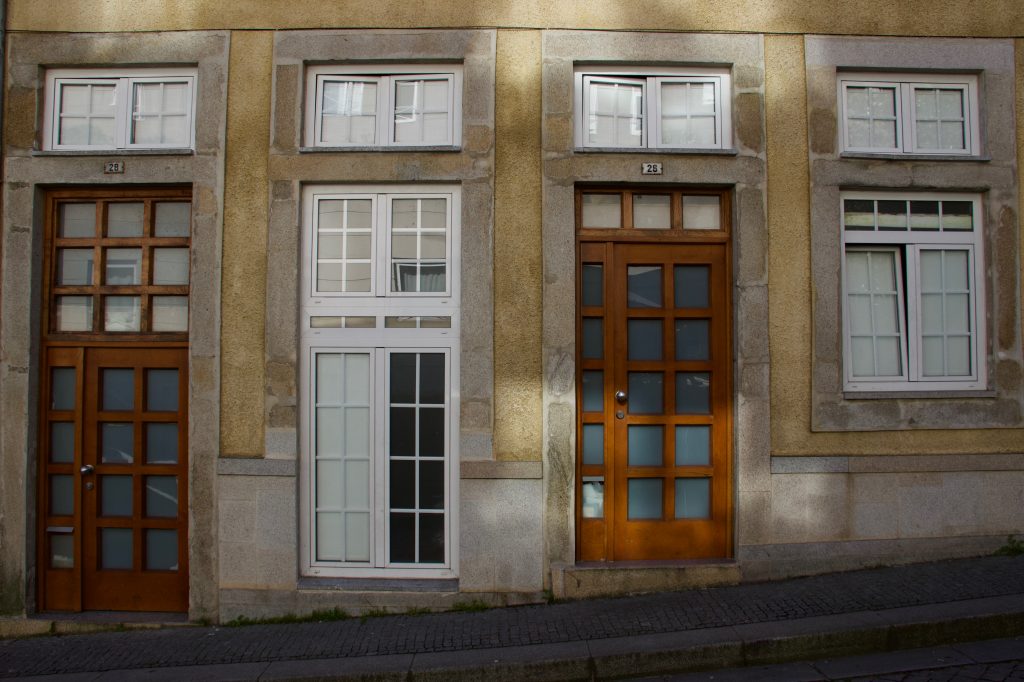
6. Finding chatty strangers novel and cute.
When I sit down on a plane in the US, there’s a good chance my seat mate wants to hear my life story. When I try to get work done in a coffee shop, people interrupt me to ask what I’m writing. In line for groceries, someone might strike up a conversation about what I’m making for dinner, or just make small talk about anything.
This is evidence of how acceptable it is to bug people in the US versus in Europe. My home country allows much more of what Europe considers annoying intrusiveness.
But Europe hasn’t won this battle in my mind. I don’t see the chattiness as annoying.
In fact, one of the fun things about being back in the US is asking random strangers random questions. I can strike up a conversation with anyone without being seen as a weirdo. (I did it in Italy too, but I think I was weird there. Especially in Milan, which is not a particularly friendly city.)
One thing I do find weird now: excessively chatty restaurant servers. Of course there’s a reason for it: servers depend on tips to make a living here, and Americans tip friendly servers. In Italy, on the other hand, tipping is not at all customary. (And your server will never tell you their name and announce they’ll be “taking care of you.”)
As with many things about life as an ex-expat, I’m probably getting spoiled. I want everything both ways! I want the American openness when it’s fun for me, but I miss the European poker face when all I want to do is eat my food and talk to my dinner companions.
7. Not knowing how to pay the check in a restaurant.
Ah, the days before quarantine, when we could go to restaurants…
Apparently, here in the States, it’s weird to ask a server in a nice restaurant whether I should “pay at the counter.” This has earned me a couple of what’s-wrong-with-you looks from servers. That’s a look I’ve learned to recognize from strangers – this confused expression that says, “she seems like she’s from here, but why is she being so weird?”
“I’ll be your cashier when you’re ready” doesn’t exist in Italy, nor in most of Europe. In Italy, you just stand up and head for the door when you’re ready to go, and someone (often the owner) tallies what you owe at a counter and you pay there. Way simpler. (For more about Italian restaurant etiquette, I wrote an entire guide.)
I think the European way wins this one for efficiency. You don’t have to wait for a server to stop by your table so you can ask for the check, and then wait again for the check to be delivered. (And you don’t have to let your credit card out of your sight, which you shouldn’t do. A scammer could copy your card info with a device attached to their smart phone.)
But we’re set up for this system in the US. (With those servers who I now find creepily friendly.) Good luck getting a waiter’s attention in Europe. Once your food has been delivered, they usually go out of their way to never make eye contactwith you again.
8. Loudly critiquing other people’s driving.
Sometimes the reverse culture shock happens when I notice that things are different (and I definitely do). But other times it’s when I’m the one acting weird, and I don’t realize it until someone else notices.
For example:
Driving is a participatory sport in Italy, and you don’t have to be in a car to play. This summer, I was waiting for a bus on a busy Chicago street, minding my own business, when a car pulled into the clearly labeled area in front of the bus stop.
I watched as a passenger hopped in the car and closed the door. No problem yet, I was cool.
Then I saw the bus entering the intersection just a few meters (yards) behind. With the car in the way, the bus had nowhere to go, and would soon be blocking the intersection.
“Come on,” I said, raising my eyebrows at the driver of the car, “Move.” I definitely wasn’t yelling, but I wasn’t whispering either. He didn’t move.
“What are you DOING?” I asked the driver, while gesturing at the bus behind him. He wasn’t listening to me, but the people next to me at the bus stop were.
One guy nodded in sympathy with my annoyance, and rolled his eyes at the car, but kept quiet. At this point, the bus was behind him, honking.
“MOVE!” I suggested, a little more loudly this time. “What are you doing?” I asked the driver as he started to crawl away from the curb.
“Oh, COME ON!!” People were looking at me at this point, as I realized I was going full Italian backseat driver.
When people screw up in Italy, you tell them. This definitely applies to driving, but it also applies to most areas of life.
And at least for driving, this has rubbed off on me – I have much less of a filter now.
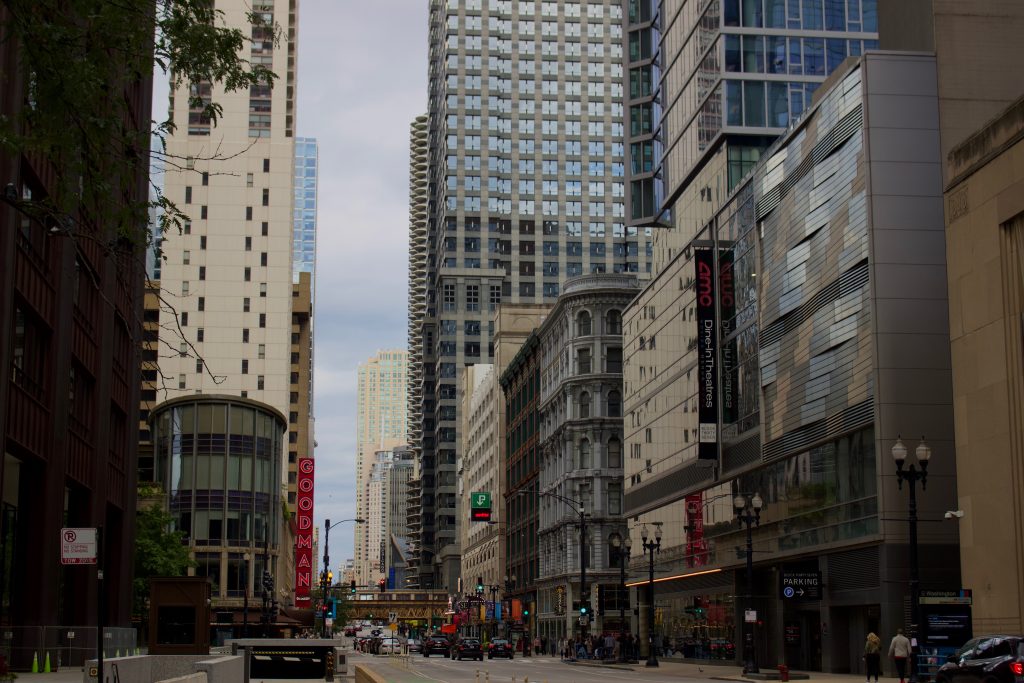
In my defense, I wasn’t yelling that loudly. I was just participating, but people don’t do that here.
Americans get involved in your life when they want to chat and make small talk, but often stay quiet when there’s a problem. Italians get involved when there’s something to critique, but aren’t so likely to chat with strangers for no reason.
A lot of these things feel so small. So insignificant.
And they don’t feel like they qualify as culture shock at first, especially when I’m in the country I was born in. They just feel like a long series of random mistakes and confusion. But I think reverse culture shock is even more disorienting than the regular kind.
After all, you expect to be confused by a foreign culture. You know things are going to be different when you move abroad. Although you never know exactly which things. Even if you think you’re prepared, there are always surprises. That’s one of the things I enjoy about discovering new cultures and living abroad.
But it’s just that insignificance of the things on this list that makes them so meaningful to how I feel in a place.
Who even thinks about light switches, or paying the check? They definitely don’t change the quality of your life. And they aren’t big cultural concepts, so who cares?
Now that I’ve experienced living somewhere truly foreign, I’ve realized that not having to think about these little details of everyday life is part of what makes me feel at home in a place. Adjusting to these kinds of new habits made me start to feel settled in all of the countries I’ve lived in – France, China, Italy, and even in places like Nicaragua where I spent just a month or so working in the country.
Then when I came back to the US, noticing the difference confirmed that I’d been living in a different world. But at the same time, getting used to all of this might mean I can eventually feel at home anywhere.
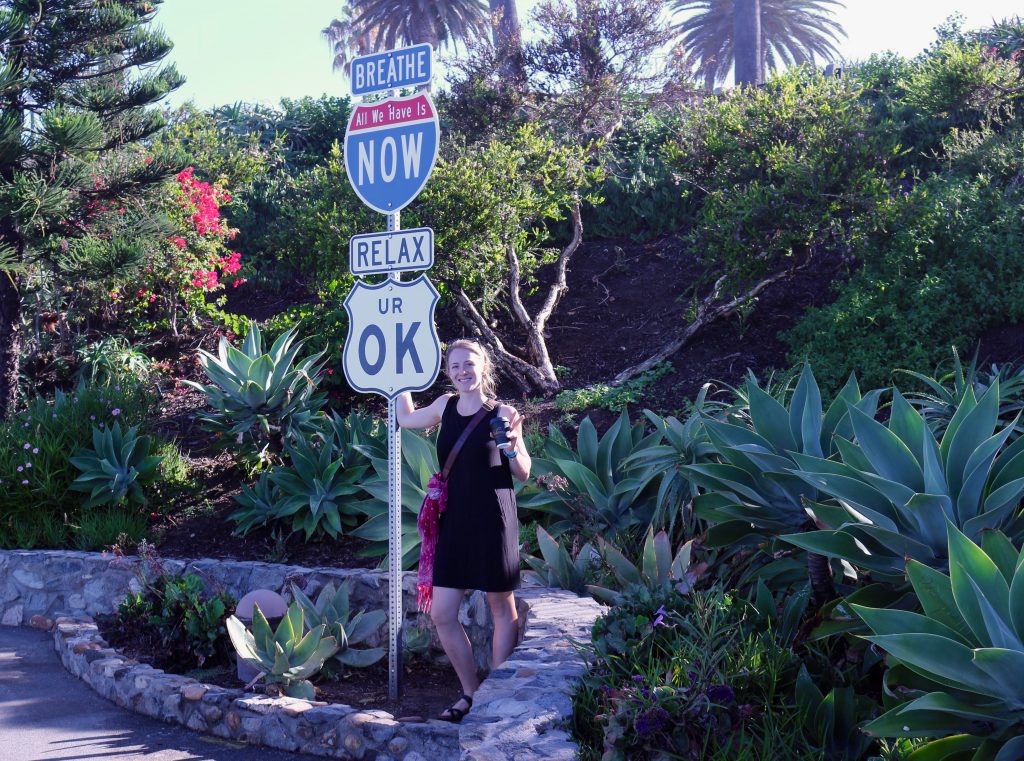
Have you lived abroad (or spent time abroad) and come home feeling out of place? Tell me below what made you feel like a foreigner in your home country, wherever that may be.

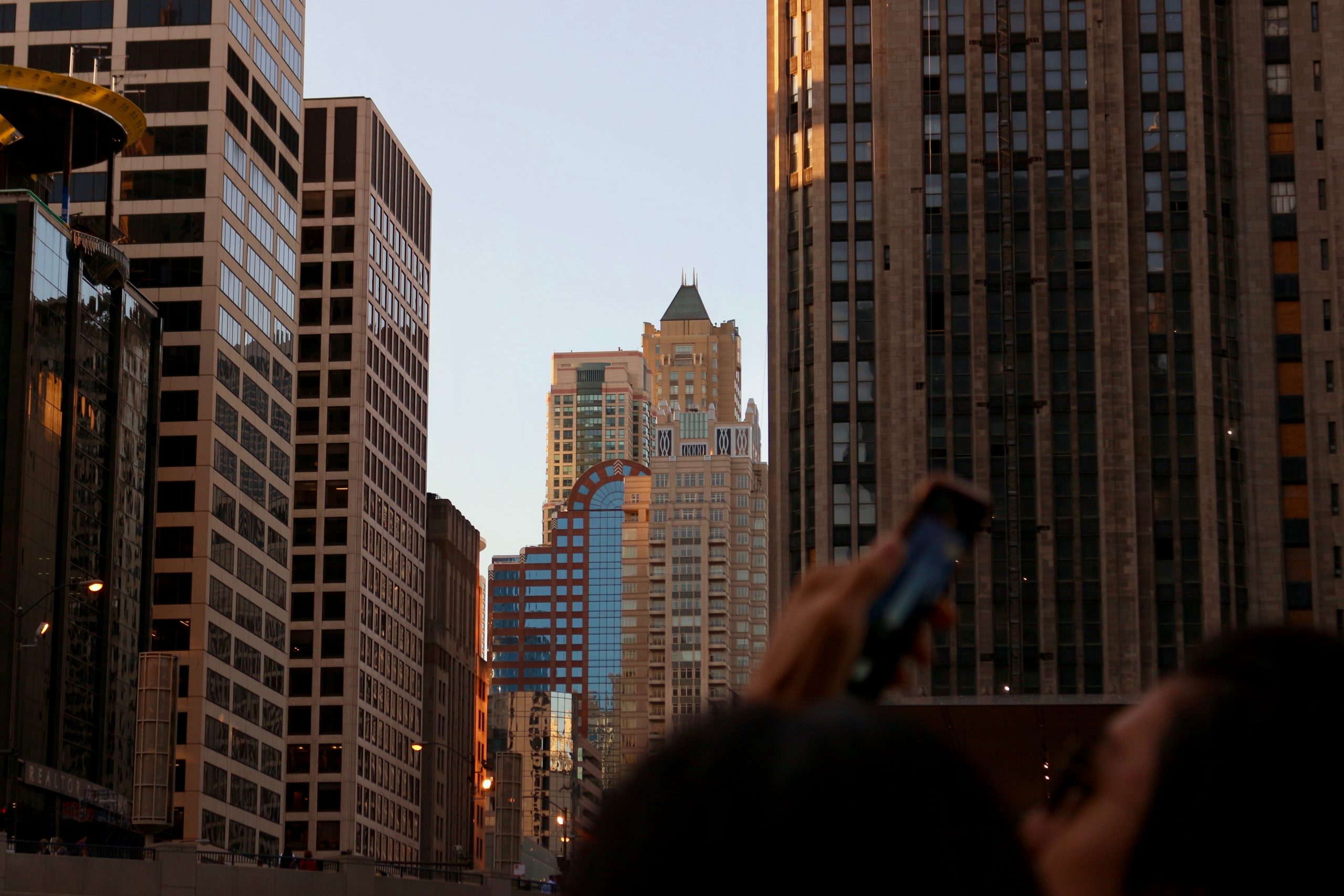


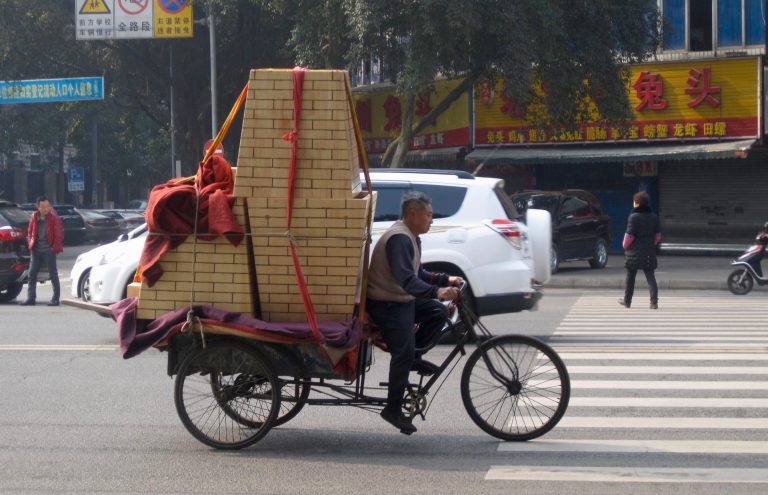

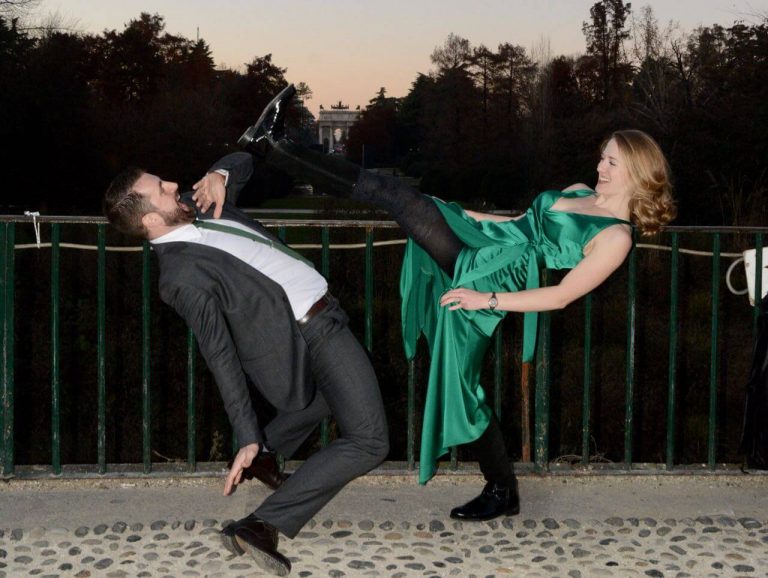

I love it !!! So true !!!! All of them !
You know what, next time we are seeing each other, we can start doing 2 things : kissing on the cheeks to say hi and yelling at people in the cars 😉
Haha absolutely!! I’m ready for both of those again. 🙂
Ketti
I experienced every single one of them! So true!
After 2 years in Italy, and still now when I go back, I find myself in a dark bathroom, door closed and touching every wall looking for the freaking light. Then I feel pretty dumb opening the door to look for the switch hoping no one would be outside to see me leaving a dark room.
CRUCIAL the side you give the first kiss and the number of kisses. As an Argentinian I do right cheek first which left me numerous times almost kissing on the lips an Italian since we were both going to the same side. Embarrassing.
Also giving only one kiss and realizing the person I am greeting is giving a second kiss to the air.. or the other way around when I go back home, adding the look “what are u doing?” from my family and friends.
I only lived in US a year and a half and I still miss that openness of Americans. I realized it changed me significantly. I was a much more outgoing person by not feeling I could be judged because I am too friendly. Specially now living in Czech Republic where people try their best to do not interact with you unless it is strictly necessary, and when they do most likely will not be friendly.
Sorry this comment is too long but this post got me thinking of those small things u barely stop to think of 🙂
Haha well you’ve seen how long my posts are, so long comments are definitely allowed too!
Seriously though, I’m glad I’m not the only one who experiences these things. I think after all these countries, we’re both just destined to be kind of weird everywhere we go. We can fit in anywhere, but we bring some “flair.” 😉
-Ketti
I enjoyed your article! I’ve been to Milan and also wondered about those light switches outside the bathroom!
Thanks Paul! I’m glad I’m not the only one. And I’m pretty sure there will never be an answer to the light switch issue.
-Ketti
Our house was built in 1947; our bathroom light is on the wall in the hall! I have an Italian bathroom light! Makes me feel better now.😉 I’m always calling to guests as they head there that the lightswitch is outside the door! Now I’ll tell people we have an Italian bathroom and they’ll think I’m crazy…
Haha! Oh, that’s great! It’s so funny to me that this seems to be the one point that so many people identify with or have a story about. I guess bathroom lights are a very personal thing..? Maybe your house was built by Italian immigrants? I wonder if there are others like it, because I certainly haven’t seen it much back in the States.
I’m from Zimbabwe and most light switches here are outside the bathroom 😄 can’t exactly say there’s much by the way of Italian influence here either, lol….
Interesting… Maybe the Italians got the idea from Zimbabwe! Thanks for sharing, Courts! I always love hearing these little snippets of life from other places. 🙂
Ketti
Turns out the light switches are a safety thing. Who knew?
https://www.linkedin.com/pulse/why-some-bathroom-light-switches-outside-room-doruk-malhan
Hmmm, interesting but I’m not convinced! What about outlets in bathrooms then? Those are still allowed.
And the article mentions the UK not allowing switches within 2 feet of a shower or tub – so why are the switches still on the outside in bathrooms that don’t have either? And in larger bathrooms?
Like many things, I think there may have been a good reason for the practice at one time, but now it’s just a matter of culture/ habit. Anyway, thanks for commenting and keep in touch! 🙂
Ketti
I am Italian, from Milan…. and light switches outside are so normal and natural…. they are on your path entering the bath.
If you think about that, you just touch them while passing by… well in sight in front of you.
You can argue this is not true when you leave the bathroom… but entering is always more urgent than leaving!
Thank you for making me think about something i never thought before 🙂
Ciao Alessandro,
All’inizio di quella frase pensavo che volessi fare il Milanese Imbruttito, but then it went it a whole different direction. 😂 Thanks for the laugh and keep in touch on Insta if you want!
(Btw my husband is also from Milan and I lived there for 3 years and go back often!)
Cheers,
Ketti
i lived in an italian american area in MA and the bathroom switches were on the outside too. when we were in italy it was like being home again in that respect. and you don’t pull too many pranks cause you’ll get your ass whooped, lol…
Lol good point! That’s so interesting that they made even the light switches Italian-style. Especially since I just moved to Boston, so I’d love to track down that neighborhood!
Thanks for commenting and keep in touch!
Ketti
Ha! I grew up in North Denver, a very Itslian area, and I came here to say this–the older homes had light switches outside the rooms. Also, the Italian restaurants and pizza places all expected you to come to the register to pay. My Dad, a very Italian man, would stop on the way out to thank the kitchen (always visible and open). I didn’t realize that wasn’t a weird Dad thing so much as an Italian thing until I went back to North Denver for lunch recently, and saw another very Italian man do it. It made me smile, like your articles on Italy do.
Grazie!
Hi Elena! That’s so interesting to hear, thank you for sharing! It’s so fun to trace these little quirks and see where they came from. (The why, however, at least for those light switches, still escapes me!)
I’m glad you’re enjoying the blog! That’s lovely to hear. If you’re interested, by all means sign up for my email list, and I’ll send you new posts once or twice a month. I’m also planning some guided trips to Italy (le Marche region) that will be open to subscribers, in case you’re interested!
Have a good day!
Ketti
“I can strike up a conversation with anyone without being seen as a weirdo.” ? Really now. I lived all my life in America and a lot of people seem to act like I am as weird when I talk to them. I guess it only applies to (neuro)typical people and not people on the spectrum. I feel that living in America on the regard as someone on the spectrum can be as bad as your description of talking to people in Europe. Also I do not feel as free here as I should being an American because of condition. I feel that my social studies classes in grade school has given me an inaccurate impression of the country I grew in. I unfortunately cannot see how this is a free country. My condition has taken my sense of freedom away! It is better to free on the inside and limited on the outside than to be free on the outside and limited on inside. I am sorry for any offense but feel that there is still some civil rights work to be done here. I hope one day in the future people like me can enjoy and sense the full freedom of being an American like they ought to.
Hi Charles,
Thanks for your comment, and for bringing up such important points.
This article is just meant to be a reflexion of my own experiences, and a relative comparison between Italy and the US. I’m definitely, absolutely not saying that the US is as free of a country as we’re taught in social studies, that it’s perfect (ha!), or that there isn’t a lot of work to be done here. So I agree with you there. (If you want to read some more of my opinions on this topic, check out some of these articles.) I’m not even saying that the US is better than Europe. That’s not what I think at all; they’re just very different places, and I find it fascinating to compare cultures, even if that necessarily leads to generalizations.
The only place where I disagree is on your hope that someday people like you can “sense the full freedom of being an American like they ought to.” That’s what all human beings, everywhere, deserve. It’s not a hope I would apply only to the US, nor do I believe are we closer to achieving it in the US than in most other countries. Perhaps I’m putting too fine a point on your words, but I just really can’t stand for American exceptionalism in any degree.
Thanks again for being in touch. I wish you the best!
Ketti
Yes. I do agree with you there on the need for equal freedowm applying to everyone everywhere (not just America). Sorry for the oversight.
No need to apologize at all! I just like to be clear on these points that I think are important. Thanks again for writing!
Ketti